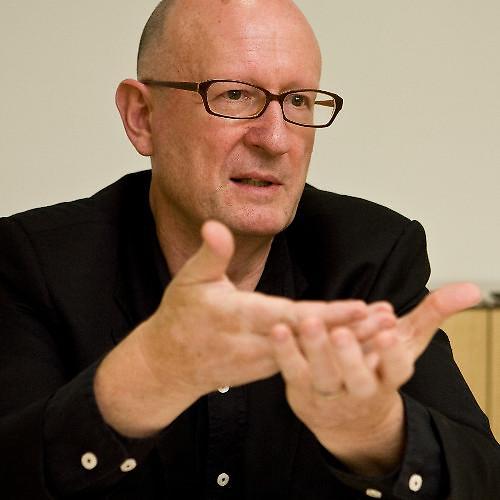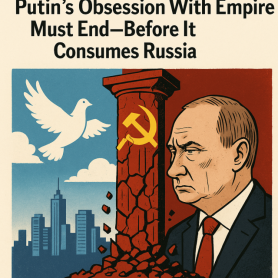
SEOUL -- At dinner once with two journalists and two diplomats, I had a bet on when Korea might re-unify. That was back in 1990. Before that time, reunification seemed like a fantasy. The energy in South Korea did not go into thinking about unification, let alone preparing for, but rather into criticizing communism. But when the Berlin Wall fell, Germany reunited, and the communist dominoes started falling, Korean reunification suddenly seemed possible.
"April 15 next year," said one of the diplomats. He was joking about the day – Kim Il-sung’s birthday that is celebrated in North Korea – but serious about the year. "April 15, 1994," said one of the journalists, picking up the joke about the memorable date. He was the only Korean among us. We foreigners thought he was being too conservative about the year. What, another four years? You must be kidding.
"April 15, 1992," I said, feeling too conservative myself. Well, those dates came and went without anything happening. We're still guessing when it might happen. There was another question back then about reunification besides the timing. It is something that we are still asking. That is, after reunification, what will remain of North Korea?
What will it contribute to the reunified nation?
Obviously, the North will provide land and people. From South Korea’s point of view, the new country will double in size and grow from around 50 million to 75 million people. This will make it, by European standards, big like Germany. But what else? Is there anything in terms of political system, government services, economic strength, technical know-how, and culture that unified Koreans will want?
Most people have said, no, there is nothing. Or, to be sensitive, they might say we could make Gaeseong the new capital.
But in recent years, I have found myself thinking that there are two things which the North Koreans may be able to give us which will make unified Korea better than South Korea. One is quite profound and I expect readers may agree with me about it. The other is more questionable and the idea itself may sound like a violation of the national security law. In fact, I may be the only person in Korea who thinks it.
First, the sensible suggestion. It has to do with the prevailing worldview in the nation with regard to the meaning of life. This is not something to be negotiated or arranged, but rather it is a possible outcome of reunification.
Korea has the lowest birth rate in the world and last week Statistics Korea said that the rate fell even lower in the second quarter, to 0.7 percent. When you consider in addition to this that we have one of the highest suicide rates in the world, it is apparent that Korea has a problem that is too deep for government policies and welfare to solve.
It has to do with the purpose of life. Why do I exist? What is valuable in life? What should I do? There is something natural about the will to pursue life and these questions often go un-asked. We live as individuals, but these questions are answered collectively and we tend to follow the pattern of our parents and society.
Very broadly speaking, for the great-grandparents of modern Koreans, the purpose of life was to continue the blood lineage. For the grandparents, it was to survive. For the parents, it was to do well and get rich. But what now? We're not sure. Buddhism and Christianity can answer these questions – and I’m sure for many believers they do – but in some ways they have subordinated themselves to the broader social trends.
For example, it is common to expect God to help us get into a good university and become rich, rather than help us love our neighbor. Could a new nation filled with North Koreans change us in that way? Will the nation be infused with the energy and joy and love of life of people liberated into freedom from one of the worst regimes in modern history? Will we too be elevated as North Koreans embrace the challenges of life in order to make a better world for their children? Will we be elevated by the job of helping them overcome trauma and deal with freedom?
The second possible contribution from North Korea may be its monarchy.
Now, before you call 113, I would definitely rule out Kim Jong-un. I cannot see a scenario in which South Koreans and free North Koreans will agree to any reminder of Kim Il-sung's family remaining in charge.
But here is the gap I see that needs to be filled. Consider the Korean frustration with their democratically elected presidents in the last few decades. All of them have, with the exception of Moon Jae-in, been hated by the end and either driven out of office or legally challenged shortly
after leaving office. The source of this frustration, despite actual corruption, is that people see them as monarchs, except that the system denies them the power to act as such. People expect something that leaders are unable to give.
A result of this system is political squabbling that seems to dominate everything and be endless.
Perhaps a system that pushes the squabbling down into a lower position is more desirable? For example, a parliamentary system with a Prime Minister who shares power with a President who is the head of state?
Or a monarch who is the head of state? It seems unthinkable and there are no obvious candidates and the idea of any hereditary system is anathema.
But somehow, with reunification, Koreans need to stake the opportunity to stabilize domestic politics and give meaning to a new generation.
Copyright ⓒ Aju Press All rights reserved.



![[COLUMN] Is it the end of dog farming?](https://image.ajunews.com/content/image/2023/12/06/20231206165042934346_278_163.jpeg)
![[COLUMN] The National Assembly, the birth rate and the way out of hell](https://image.ajunews.com/content/image/2023/02/17/20230217232456721696_278_163.jpg)